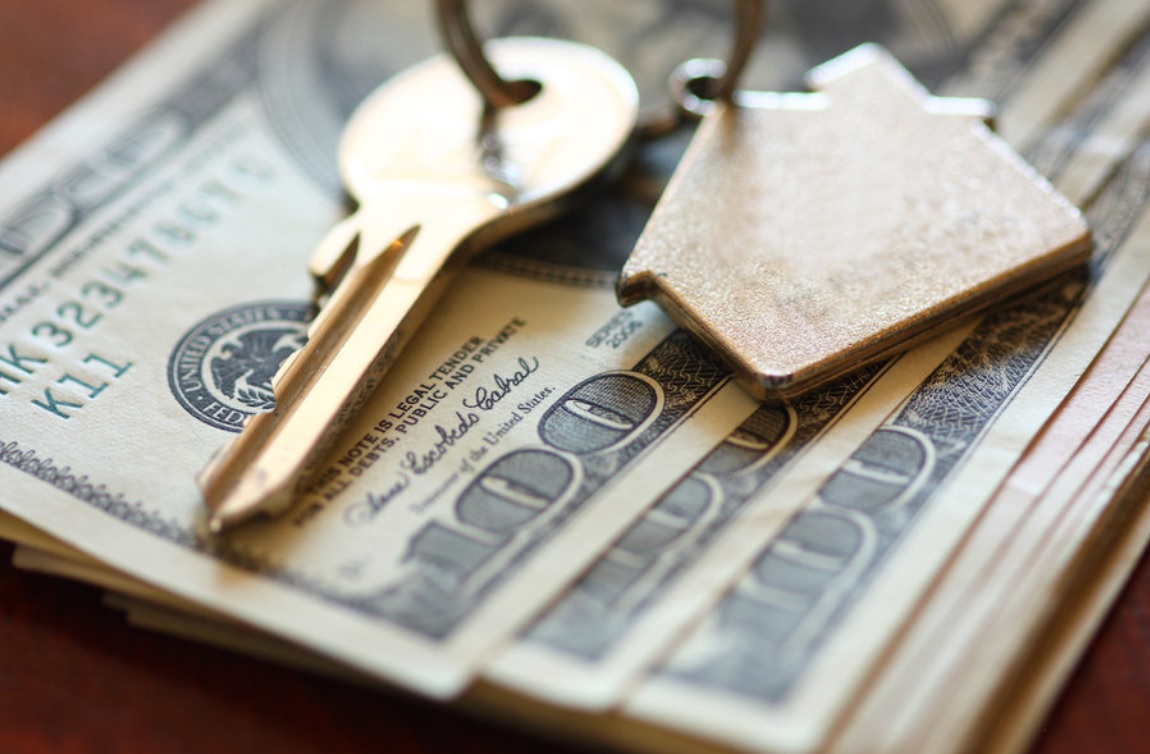Before June 2019, NYC owners and management companies could ask tenants to pay first month’s rent and several month’s rent as a security deposit when renting out an apartment. As you would expect, the majority of NYC renters had a hard time covering these costs as it would often cost over $10,000 once all fees were included! Luckily, the rent laws passed in 2019 stopped this practice and made it much easier for renters to get their security deposits back after moving.
While many management companies follow the law, there are still plenty of landlords who will do their best to keep your security deposit. Considering the average rents in Manhattan have soared past $5,000 a month, losing even a portion of your security deposit means losing out on a significant amount of money.
In order to improve your chances, follow the below tips on how to get your security depository back in NYC.
What Is a Security Deposit
If you’re moving into your first apartment, you might not be familiar with this term. In essence, it’s a sum of money used as an incentive to make sure you don’t damage your apartment. The landlord hangs onto your security deposit during your residency and should give it back after you move out so long as there aren’t any unpaid bills, rent, or serious damage to your apartment.
In NYC, owners and management companies can only ask for a security deposit that does not exceed the amount of one month’s rent. Should they ask for more, you can file a complaint with supporting documents to the New York State Division of Housing and Community Renewable. If you end up renewing your lease and the rent increases, the owner/management company is within their rights to ask for additional security money that equals the increased cost. So if your rent increased by $27, you would need to provide an extra $27 + your new rent after renewal.
The Difference with NYC Security Deposits
If you’ve rented in other states, you’re probably already familiar with security deposits. These are refundable and tenants can get their money back after the lease is over so long as the apartment is in good condition. The landlord must return the security deposit within 14 days after the tenant has moved out of the apartment and returned the key.
In New York, landlords/management companies can place the deposit in a bank account that accrues interest. If they do, they must provide the name and information of the bank where the deposit is being held. For those living in non-regulated buildings with six or more units, the landlord must pay tenants interest on the security deposit. They are able to keep up to 1 percent of the accrued interest to help with administrative costs, but the rest must go to the tenant and can be paid out via reduced rent, paid at the end of the year, or paid at the end of lease.
What Can Landlords Use Your Security Deposit For?
One of the biggest misconceptions is that landlords can keep your security deposit to fix normal wear and tear that happens while living in the apartment. So what is considered normal wear and tear? While there’s no specific definition, it’s generally considered deterioration that occurs naturally as a result of tenants using the property. This includes:
- Scuff marks on tiles or linoleum
- Wear patterns on carpets
- Wall dents from door handles
- Warping of doors and windows
- Cracks in walls or ceilings
- Worn out faucets or shower heads
Your landlord cannot take money out of your deposit if these are the only ‘damages’ in your apartment. However, they can charge you for:
- Holes in walls not from door knobs
- Water marks from overflowed sinks or bathtub
- Broken toilet seat
- Unauthorized painting
- Pet urine stains on floors and carpets
- Burns on floors
- Holes or tears in linoleum
- Non-payment of utility charges
- Moving and storage of your belongings
They must provide you with an itemized statement showing what they have deducted from your deposit. So how do you make sure you don’t get charged for any issues? Below are some ways to increase the odds of getting your security deposit back.
Record Damages on Move-In
When moving into a new apartment, do a thorough walkthrough of each room and take pictures of every imperfection you see and document it. Make sure you keep these pictures saved in a folder and, for good measure, email them to the landlord or management company so you’re both clear on pre-existing damage. Don’t stop at the walls, check the cupboard, drawers, and inside your closets. Don’t forget to test the water and heating. Make sure you record everything. That way you’re not hit with a repair bill that you shouldn’t be responsible for.
Repair Any Damage Before Moving Out
On move out, do a walk through and inspect any damage around the apartment. It might make sense for you to make any repairs immediately before leaving out. That way it will give you some control over the cost and process versus what the landlord might charge you to fix these issues. Also, don’t forget to clean everything and return any changes you’ve made to their original state. That includes painting the walls back to the original color and removing any light fixtures.
Give Appropriate Notice
Even if you hate your landlord, you are required by law to give notice within one month of your move out date. Your security deposit usually cannot be substituted for your last month’s rent unless you specifically receive written permission from your landlord or management company. If you give less than a month’s notice, a part of your deposit might be withheld. Your best bet is to let management know as soon as possible. Put your notice in writing and send it via certified mail. Some companies and landlords might have online portals where you can submit your notice so you can send your request in that way.
Get Professional Movers
The last thing you want to do is damage your old or new apartment on moving day. It happens more often than you might think as many people might end up leaving holes in the wall or marks on the floor from moving furniture and large boxes.
Professional NYC movers are trained to handle your belongings without scuffing the walls, floors, or other areas of the building. In fact, many buildings require movers as they have appropriate insurance to cover any damages they might make to the building. Since you’re hiring movers, make sure they don’t leave anything behind. You can direct them to throw out any large items you’re not taking with you. In some cases, they might even drop them off at donation centers as long as you provide the specifics.
What to Do If Your Landlord Refuses to Pay Back Your Deposit
If you haven’t caused serious damage to the apartment and your landlord refuses to give your deposit back, there are a few steps you can take to get it back:
- Contact your landlord/management company directly and try to come to an agreement. Make sure to put everything into writing with dates, images, and details. If you do come to an agreement, get it in writing and make sure both parties sign.
- Send a demand letter – if your landlord refuses to negotiate, you will need to send a demand letter asking for the deposit. You can find templates online or work with a tenant rights lawyer.
- Take them to court – If your landlord doesn’t respond or you can’t come to an agreement, you can file a lawsuit at small claims court. You can sue for the amount of the security deposit up to NYC’s limit of $5,000.
Protect Your Security Deposit
Moving isn’t cheap so you don’t want to lose out on any of your security deposit when you move out of your old place. So long as you leave your apartment in good condition when you leave, you shouldn’t have to worry about a portion of your deposit being withheld. You can even fix small damages to your apartment before you move, which is usually cheaper than what your landlord might withhold from our deposit if they fixed it themselves.
Once you’re ready to move out, call NYC Great Movers to ensure nothing gets damaged, not your belongings or your old or new building. More importantly, you’ll save yourself a lot of stress and back pain by hiring professionals.
FAQ
How do I deal with the security deposit if a roommate moves out?
If they are on the lease, the landlord will provide their portion back to them and the new roommate will have to provide a security deposit. If they are not on the lease, you will need to figure out a way to get them their portion of the deposit back. In some cases, you are able to borrow against your security deposit, but you will need to repay within a month.
Do I need to clean the apartment after I move?
Yes, you should clean your apartment before you turn in your keys and officially move out. That includes deep cleaning the carpets, cupboard, bathroom, and other areas. If you leave a mess, the landlord can deduct the cost of cleaning from your security deposit.
What happens if the landlord doesn’t show up to court?
If your landlord refuses to give you the deposit and doesn’t show up to small claims court, you automatically win the case. In which case, the court will send the judgment to your landlord for the amount in the complaint.






